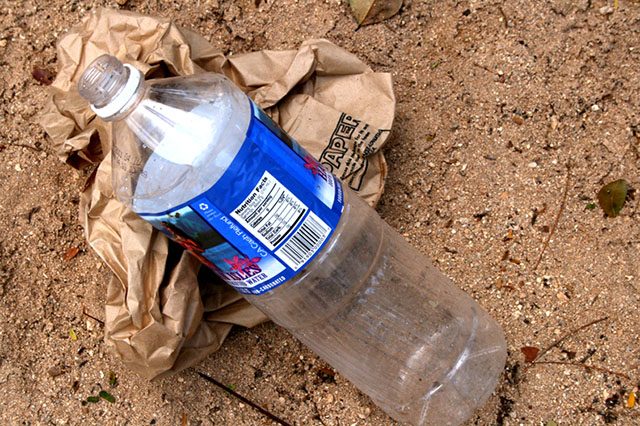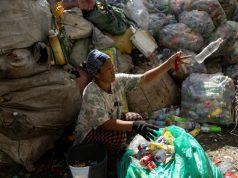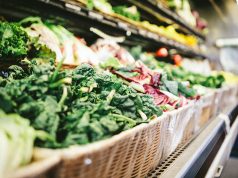An environmental organization resurfaced its initiative to pressure big consumer goods companies to be accountable for their products and to be more aware of their impact on Mother Earth.
Greenpeace urged the public to take a picture of any single-use plastic waste that they have spotted lying around, post it on social media and then tag the company that manufactured it with the hashtag “IsThisYours?”
Found some trash laying around?
Take a photo
Post on social media
Tag the company responsible for it
Use the #IsThisYours?
Challenge your friends!https://t.co/L7PX2XvBpM
— Greenpeace (@Greenpeace) February 20, 2019
It is the organization’s way to raise awareness on the overall impact of plastic to the environment which is generally produced by large consumer goods companies.
Their website notes:
“Call out the brands for their polluting packaging on social media! Simply take a photo of the next piece of branded plastic waste you see outside near your house, school, beach, nature trail, or other places.”
“Post the photo to social media, tag the brand, and use the hashtag #IsThisYours? to let these companies know we’re calling them out for polluting the planet with throwaway plastic. Then challenge your friends to do the same!”
The trend has been picked up by different countries such as the United Kingdom, New Zealand and India.
It has been around since June 2018, as far as previous reports go.
According to Greenpeace, it is their way to urge companies to “truly make a difference on plastic pollution” as their data reveals that more than 90 percent of plastics remain unrecycled.
The initiative started when the organization noticed that the number of single-use plastic wastes does not seem to decrease in any significant amount despite vows from companies to reduce their plastic production.
“Over the past year, many big brands have released statements or plans to address the massive plastic pollution crisis they helped create. But their plans are not nearly ambitious enough,” Greenpeace said.
“To truly make a difference on plastic pollution, corporations must significantly and immediately reduce their plastic production,” they added.
The plastic problem
In the past, companies used plastics to store their products and goods since it is durable, lightweight and versatile, among other things.
Single-use plastics can last over 400 years without decomposing. Meanwhile, durable plastic items such as bottles, disposable diapers and beer holders can take up to 450 years before they decompose.
This is because plastics are generally made from petroleum byproducts which have great molecular stability—a characteristic that makes them hard to chemically break down.
When the number of plastic wastes began to accumulate in an extremely alarming manner throughout the years, environmentalists urged companies and manufacturers to refrain from storing products in single-use plastics.
In a report by the United Nations Environment, it was revealed that the world “produces about 300 million tonnes of plastic waste every year” that is considered almost “equivalent to the weight of the entire human population.”
“Most plastic items never fully disappear; they just get smaller and smaller,” they noted.
“Many of these tiny plastic particles are swallowed by farm animals or fish who mistake them for food, and thus can find their way onto our dinner plates. If current trends continue, our oceans could contain more plastic than fish by 2050,” the organization added.
UN Environment also shared that plastics have the tendency to clog sewers which can become breeding grounds for mosquitoes and pests.


 . . . #BreakFreeFromPlastic #EndOceanPlastic #AMillionActsOfBlue #IsThisYours
. . . #BreakFreeFromPlastic #EndOceanPlastic #AMillionActsOfBlue #IsThisYours







